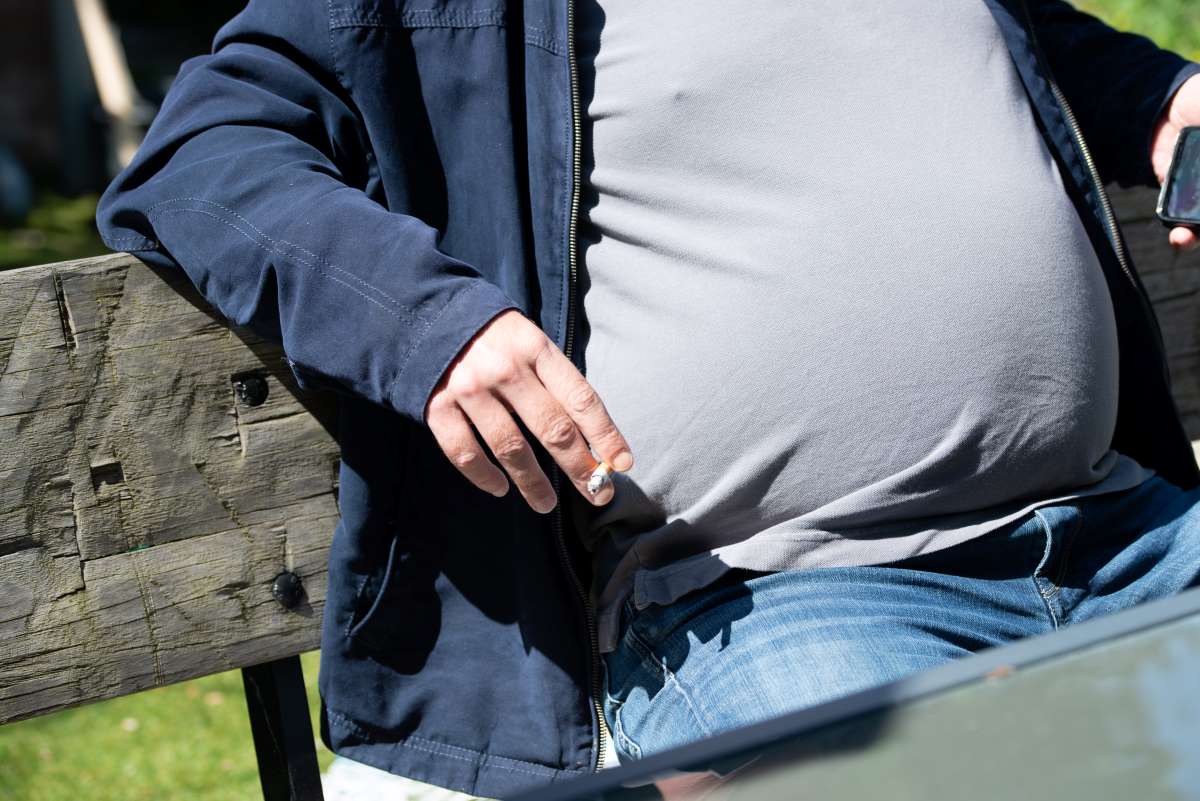There’s nothing inherently wrong with a weight loss ‘quick fix’, because it can help you gain momentum.
If you are morbidly obese, you’ve got a crisis on your hands. So going hard and fast and aggressively in that crisis can be a good thing, because you lose the weight and you get some positive reinforcement when you do.
You feel better, you sleep better, you think better. There was a study out last week on obesity and cognitive function, and being overweight impairs cognitive ability. So, sexually, mentally, physically, everything will improve.
You don’t even have to be morbidly obese. You can be mildly overweight, and if you lose 2% of your body weight – which is not a lot – you’re going to feel a spring in your step. You’re going to feel better.
A quick fix is not a long-term solution, therefore it’s demonised. But it can be a springboard to better things.
The problem is, after you take that leap, you land in the water of your new lifestyle, and if you’ve not been taught how to swim, you sink and effectively, you revert back to type. That’s what happens with most people.

So, a ‘soup and shake’ diet, for most people, is not something we can support, because it’s got everything that’s wrong with a lack of sustainability.
The problem is, you’re taking so much away from someone, you’re depriving them of something. So, they’re going to get very hungry, they’re going to fixate on food, and they’ve got a bad relationship with food in the first place, so you’re setting yourself up for failure.
Many of us are hard-wired, including myself, to feel good when we have a full stomach. I don’t know the percentage of the obese that are physiologically addicted to having a full stomach, or that are physiologically addicted to overeating, but I think it’s a significant majority, and people don’t talk about it.
So, there is a physiological and mental challenge to overcome, that short, sharp diets could exacerbate without the right level of coaching.
Now, of course, from a government perspective, from a political perspective, from a public health perspective, how on earth do you have the resources to give the obese who quite often need their hand holding? How do you give them that amount of resourcing? You can’t, it’s impossible.
So, it’s a really complicated proposition. The smartest people in the room when it comes to food are the marketers at Mars and Unilever and all these places. That’s what you’re up against.
I am not a proponent of ‘big government’ intervention. I don’t like it, make no mistake, at all. I think they interfere far too much in our lives. But when it comes to junk food and sugar, you have to look at the impact of unfettered access to it.
I was born in 1972. Look at the 1970s, and videos of people at the seaside. No-one was fat. Look at it now – it’s an absolute disaster.
People need saving from themselves, the way we saved people from themselves when it came to cigarette smoking.

So, for me, there are massive, massive parallels from a public health policy perspective on the way we approach cigarette smoking. We’ve ramped up tax, made a packet of cigarettes very expensive, and we’ve made it socially unacceptable.
You become a pariah if you smoke now. And it’s worked. People don’t smoke anywhere near like they used to smoke.
With junk food and obesity, from a public health policy perspective, if you want to address it, you must make it harder for people to access, so you have to make it more expensive.
Simple as that. You have to tell people that – and this is the controversial bit – because obesity requires compassion, and people think compassion can’t go hand-in-hand with the truth, because the truth upsets people.
But we shouldn’t sugar-coat the truth. You get the cigarette packets with the revolting truth of throat cancer and lung cancer and tongue cancer, and every type of cancer imaginable.
We need to make that clear, if you’re morbidly obese, this is what you’re doing to yourself. You’re a ticking timebomb.
No-one will like to hear this, but fat people, or morbidly obese people – they need our sympathy and our compassion. If you see a junkie, you can be an a*****e about it and blame them. But that doesn’t help them, and it’s not the right approach.
The right approach is humanity, to be human and to be compassionate. Whilst also telling them: “Get off the drugs, the drugs are killing you.”
This is how we should deal with obesity. It’s as simple as that.



